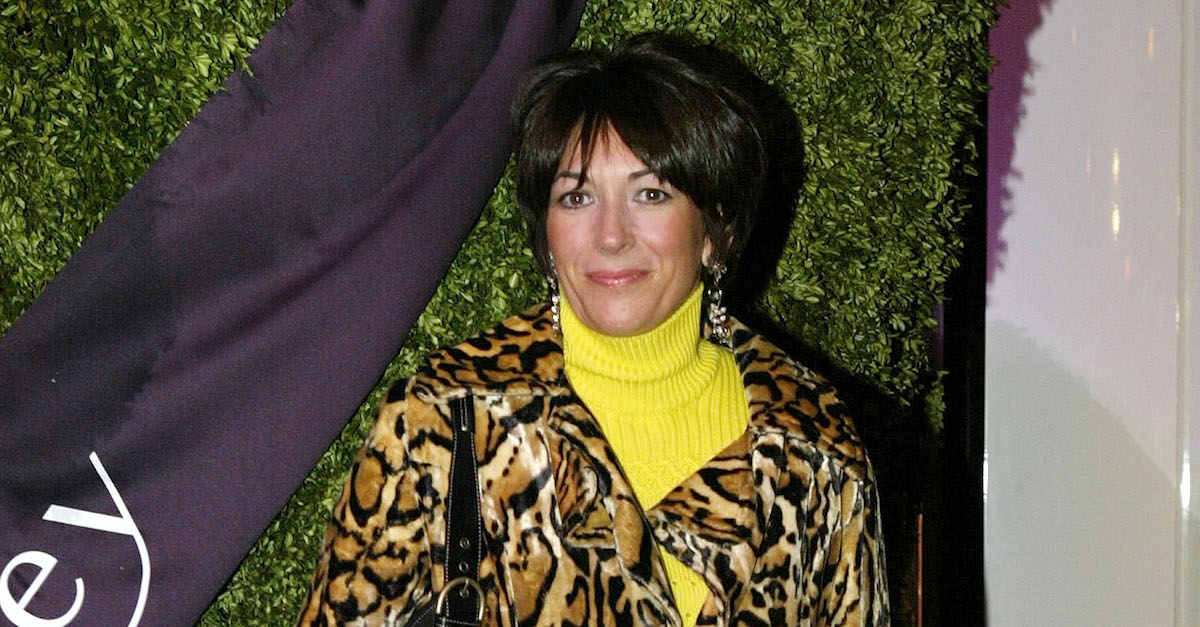
A federal judge denied Ghislaine Maxwell’s second bail application on Monday, finding that Jeffrey Epstein’s accused accomplice could not be trusted to stay in the United States if allowed to await trial at home before the new year.
“The court concludes that none of the new information that the Defendant presented in support of her application has a material bearing on the Court’s determination that she poses a flight risk,” U.S. District Judge Alison Nathan wrote in a two-page ruling.
In July, Judge Nathan feared that Maxwell would try to flee if allowed to await trial outside of jail.
“The risks are simply too great,” Nathan found, following a hearing where Maxwell pleaded not guilty to six charges accusing her of grooming and abusing Epstein’s victims and lying about it under oath.
Trying again before the holidays, Maxwell upped the ante by proposing a $28.5 million bail package signed by her secret husband and a redacted clique of supporters, whom she claimed would attest to her deep ties to the United States.
Not impressed, Judge Nathan found that—if anything—Maxwell’s renewed effort “only solidifies” her fears that the Brit would disappear to the continent.
Maxwell’s evolving story of her finances troubled the judge. Before suddenly finding tens of millions of dollars in her fortune, Maxwell told authorities earlier this year that she had around $3.5 million worth of assets. She left out her spouse’s assets and assets that had been transferred to trust accounts and insisted that the New Hampshire property was owned by a corporation and that she was “just able to stay there.”
Subjecting her finances to the scrutiny of the U.K. accounting firm Macalvins—cross-checked by a certified fraud examiner and IRS special agent that she retained—Maxwell hoped to persuade the judge that she was coming clean about her finances.
But the gulf between what Maxwell initially told the court and what those investigators found backfired against her.
“In sum, the evidence of a lack of candor is, if anything, stronger now than in July 2020, as it is clear to the Court that the defendant’s representations to Pretrial Services were woefully incomplete,” Nathan wrote. “That lack of candor raises significant concerns as to whether the court has now been provided a full and accurate picture of her finances and as to the defendant’s willingness to abide by any set of conditions of release.
Prosecutors from the Southern District of New York’s public corruption unit depicted Maxwell as a living a life in the shadows, traveling frequently with three passports, and owning more than a dozen bank accounts, assuming the alter ego “GMax.”
After a coronavirus scare inside Brooklyn’s Metropolitan Correctional Center—where she has been awaiting trial—Maxwell renewed her application. She disclosed more details about her finances and claimed that the secret marriage that she entered into proved her ties to the United States, which she argued would keep her from returning to France or the United Kingdom.
Maxwell holds citizenship in both countries, which do not extradite people to the United States often.
Splashing cold water over Maxwell’s tales of marital bliss, prosecutors revealed that she told authorities that she and her husband were “in the process of getting divorced.”
That remark did not escape the judge’s attention.
“Among other things, the defendant now argues that her newly revealed relationship with her spouse signals her deep affective ties in the country, but at the time she was arrested, she was not living with him and claimed to be getting divorced,” the ruling states. “Indeed, she does not propose to live with him were she to be released on bail, undercutting her argument that that relationship would create an insurmountable burden to her fleeing.”
Maxwell’s attorney Mark Cohen insisted that was because Maxwell had been trying to protect her spouse.
“Prior to her arrest, Ms. Maxwell and her spouse had discussed the idea of getting a divorce as an additional way to create distance between Ms. Maxwell and her spouse to protect him [REDACTED] from the terrible consequences of being associated with her,” Cohen wrote.
Submitting many of their arguments under seal, Maxwell’s lawyers contended that revealing the names or identifying information about the friends and family supporting their clients’ renewed bail application would put them at risk. Judge Nathan issued the two-page order to protect their privacy, while giving prosecutors and defense attorneys 48 hours to propose redactions to her fuller ruling, which was ultimately released without apparent redactions.
For Judge Nathan, the most powerful argument for Maxwell’s release was the COVID-19 pandemic’s toll on U.S. prisons, but this too ultimately fell short.
“Indeed, in recent weeks, the incidence of COVID-19 among the inmate population where the Defendant is housed is truly alarming,” she wrote. “It could be argued that in the face of this, only those defendants who pose a danger to the community ought to be detained pending trial. If that were the law and in light of the increasing positivity rate, the Court would not hesitate to reopen the detention hearing and release the Defendant on bail since the Government rests none of its arguments on dangerousness. But that is not the law.”
Late last month, Maxwell was quarantined following a coronavirus scare in her unit. She tested negative.
Update — Dec. 30 at 4:47 CT: Two days after her initial ruling, Judge Nathan unsealed the ruling explaining why Maxwell is still a flight risk, and that reasoning has been added to the story.
Read the unsealed ruling following the initial order:
Read the initial order below:
[image via Mark Mainz/Getty Images]